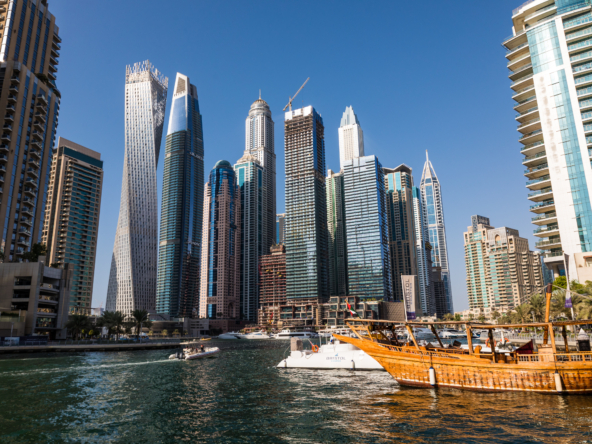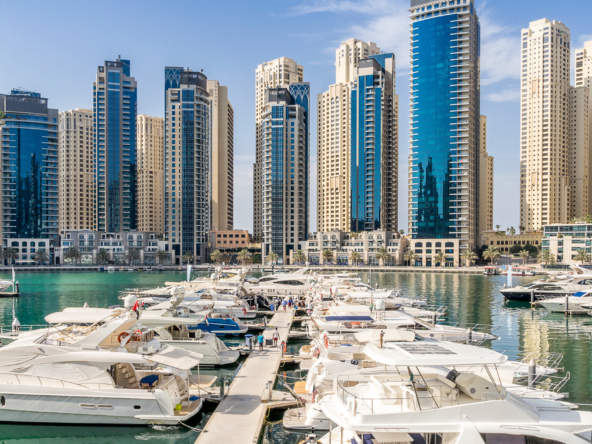The investment landscape in the UAE is rapidly evolving, with investors constantly on the lookout for high-growth opportunities. Two of the most popular asset classes today are real estate and cryptocurrency, each offering distinct advantages. Real estate, long considered a stable and reliable investment, continues to attract foreign buyers seeking long-term appreciation and rental income. On the other hand, cryptocurrency, with its promise of quick returns and decentralised nature, has captivated a new generation of investors.
But when it comes to the future of investing in the UAE, which asset class holds the upper hand? Is real estate’s stability enough to overshadow the high-risk, high-reward nature of crypto? Let’s dive deeper into both markets to assess their future prospects.
Real Estate: The Cornerstone of UAE’s Investment Market
Real estate has always been a pillar of the UAE’s economy, particularly in cities like Dubai and Abu Dhabi. The UAE government’s favorable policies toward foreign ownership, coupled with world-class infrastructure, have made real estate one of the most attractive asset classes for international investors.
In 2023, foreign investors accounted for approximately 45% of total real estate transactions in Dubai alone, with a significant portion directed towards off-the-plan properties. This trend is expected to grow as more investors from Europe, Asia, and the Americas recognise the long-term benefits of investing in UAE real estate.
Key Statistics to Consider:
- According to the Dubai Land Department (DLD), real estate sales surged by 44% in 2023 compared to the previous year.
- The UAE population is projected to grow by 3.5% annually, with increasing demand for residential and commercial properties.
- Rental yields in Dubai range from 5-8%, significantly higher than global averages in cities like London (2-3%) or New York (3-5%).
The UAE’s commitment to infrastructure development, such as Expo City Dubai and the massive expansion of public transport networks, further enhances the appeal of real estate investments. These projects promise to boost property values and increase rental demand, making real estate a long-term growth asset.
Crypto: The High-Risk, High-Reward Frontier
Cryptocurrency has undeniably become a global phenomenon, with the UAE emerging as a key player in the crypto space. Cities like Dubai have actively embraced blockchain technology and digital currencies, with initiatives such as the Dubai Blockchain Strategy aiming to make the city a hub for all things crypto.
The appeal of crypto lies in its decentralised nature, offering investors the possibility of massive returns in a short period. Bitcoin, Ethereum, and other major digital currencies have experienced meteoric rises, turning early adopters into millionaires overnight. However, the crypto market is also notoriously volatile, with prices fluctuating wildly based on market sentiment, regulatory changes, and even social media activity.
Key Statistics to Consider:
- In 2021, the UAE was ranked among the top 10 countries globally in terms of cryptocurrency transactions, according to Chainalysis.
- Bitcoin saw a staggering increase of over 300% from January to December 2021, before experiencing a significant drop in 2022 and stabilising thereafter.
- The global cryptocurrency market is projected to grow at a CAGR of 12.8% from 2023 to 2028, driven by increasing adoption, improved regulations, and institutional investments.
The UAE government’s progressive approach towards digital assets is a key driver for the growing popularity of crypto. The Dubai Virtual Assets Regulatory Authority (VARA) has been established to regulate and support the crypto ecosystem, ensuring investor protection while promoting innovation.
Real Estate vs. Crypto: A Comparative Analysis
When evaluating real estate and cryptocurrency as asset classes, it’s essential to consider key factors such as risk, return, liquidity, and long-term stability. Both offer unique advantages, but they cater to different types of investors based on their risk tolerance and investment horizon.
1. Stability
- Real Estate: Real estate is historically one of the most stable investments. Property values in the UAE tend to appreciate steadily over time, with fluctuations being relatively modest compared to the crypto market.
- Crypto: The crypto market is known for its extreme volatility. While investors can experience exponential gains, the risk of losing capital due to sudden market drops or regulatory changes is equally high.
2. Return on Investment (ROI)
- Real Estate: In the UAE, real estate typically offers a solid ROI through both capital appreciation and rental yields. Off-the-plan properties, in particular, provide opportunities for significant growth as developments mature.
- Crypto: Cryptocurrency offers potentially massive short-term gains, with coins like Bitcoin and Ethereum delivering extraordinary returns for early investors. However, predicting future performance is challenging due to the speculative nature of the market.
3. Liquidity
- Real Estate: While real estate offers long-term returns, it lacks liquidity. Selling a property can take weeks or even months, and transaction costs (agent fees, legal costs, etc.) can eat into profits.
- Crypto: Cryptocurrency is highly liquid, with investors able to buy and sell digital assets instantly through exchanges. However, this liquidity comes with high volatility, which can result in significant losses if not managed carefully.
4. Regulatory Environment
- Real Estate: The UAE real estate market is well-regulated, offering investor protection and transparency. Government initiatives to attract foreign buyers, such as long-term visas for property owners, have further boosted confidence in this asset class.
- Crypto: While the UAE has made strides in creating a supportive regulatory environment for crypto, the market remains susceptible to sudden regulatory shifts both locally and globally, which could impact future returns.
The Future Outlook: Which is Better for UAE Investors?
Real Estate: A Long-Term, Stable Investment
For foreign investors looking for long-term stability, capital appreciation, and steady rental income, real estate remains a top choice. The UAE’s economic growth, population increase, and ongoing infrastructure projects provide a strong foundation for continued demand in the property market.
Off-the-plan developments, in particular, offer excellent opportunities for investors to enter the market at competitive prices, with the potential for significant value appreciation as projects near completion. Moreover, the UAE’s tax-friendly environment (zero capital gains tax and zero income tax on real estate) makes it a particularly attractive option for international investors.
Crypto: High Potential but High Risk
For those with a higher risk appetite and a desire for potentially rapid returns, cryptocurrency presents an exciting opportunity. The UAE’s proactive stance on blockchain and crypto regulations is creating a fertile ground for the digital economy to flourish, making it a viable option for investors who are willing to navigate the volatility.
However, it’s important to note that crypto is still in its nascent stages and comes with considerable risk. The market’s volatility and the evolving regulatory landscape make it an unpredictable investment option.
Conclusion: A Balanced Approach?
The choice between real estate and cryptocurrency as an investment vehicle ultimately depends on the individual’s risk tolerance, investment goals, and timeline. For foreign investors seeking stable, long-term growth with lower risk, real estate is likely the better option, particularly given the UAE’s strong economic fundamentals and government support for the sector.
On the other hand, for those willing to take on higher risk for the chance of high returns, crypto offers an exciting, albeit volatile, opportunity.
For UAE investors looking to balance risk and reward, a diversified approach may be the most prudent strategy. By combining real estate’s long-term stability with cryptocurrency’s high-growth potential, investors can hedge against market fluctuations while maximising potential gains.




